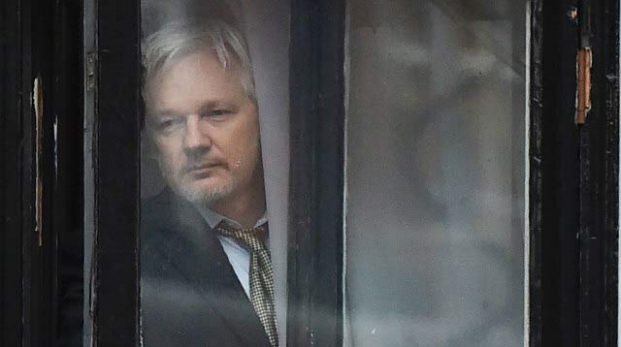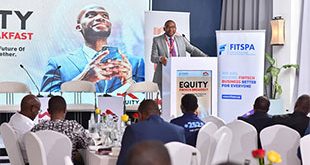
Berlin, Germany | AFP |
Celebrating its 10th anniversary this week, anonymous whistleblowing platform WikiLeaks can look back on a decade that saw it turn classified documents into global headlines and inspire a host of copycat leaks.
But with founder Julian Assange hiding in Ecuador’s London embassy to evade rape allegations and critics accusing the site of being manipulated by shadowy forces for political gain, the organisation is fighting to maintain its image.
An anniversary party in Berlin on Tuesday will commemorate the 2006 registration of the domain name wikileaks.org, while Assange will make a rare public appearance on the balcony of his 18-square-metre room.
WikiLeaks launched in January 2007, with Assange saying it would use encryption and a censorship-proof website to protect sources and publicise secret information.
The site has since published more than 10 million leaked documents.
It first caught the world’s attention when it released manuals for prison guards at Guantanamo Bay.
But it really hit its stride in 2010, unveiling logs of US military operations in Iraq and Afghanistan and a video showing a US helicopter crew mowing down a group of unarmed civilians — including two journalists — in Baghdad.
That same year it also published a cache of diplomatic cables from US embassies around the world, deeply embarrassing Washington.
“The most important single collection of material we have published is the US diplomatic cable series,” Assange told German news weekly Der Spiegel in an interview at the weekend.
‘Power-obsessed’
But 2010 also saw grave blows to the organisation.
Assange was accused of having sex with a woman while she was asleep after the two met at a Stockholm conference.
The white-haired WikiLeaks founder took refuge in the London embassy of Ecuador — which granted him political asylum in 2012 after he lost a legal battle to block his extradition to Sweden.
The 45-year-old has always maintained the allegations are false and has refused to travel to Stockholm for questioning due to concerns that Sweden will hand him over to the US to stand trial for espionage.
In September, staffer Daniel Domscheit-Berg quit WikiLeaks, accusing Assange of being “chaotic” and “power-obsessed” in a 2011 book.
“The press said WikiLeaks was the end of journalism and the beginning of something totally new,” Domscheit-Berg remembers of the “hype” of 2010.
But Assange’s abrasive style and insistence on publishing unredacted documents quickly grated on colleagues and journalists who worked with him.
“If an Afghan civilian helps coalition forces, he deserves to die,” Guardian investigative journalist Nick Davies later recalled Assange saying in an argument over whether to remove names from the war logs.
Snowden, Panama Papers
Domscheit-Berg suspects Assange’s inflexibility discouraged future sources from turning to the organisation.
In 2013, former US National Security Agency contractor Edward Snowden chose to leak documents exposing intelligence agencies’ mass surveillance programmes to selected journalists instead of offering the trove to WikiLeaks.
And many later whistleblowers have turned to other organisations.
The International Consortium of Investigative Journalists this year published stories based on data dumps from tax havens Panama and the Bahamas, while environmental group Greenpeace in May released documents from negotiations over a controversial US-EU free trade deal.
Tool for influence?
WikiLeaks caused a fresh stir in July when it leaked emails showing US Democratic Party officials favouring Hillary Clinton over left-winger Bernie Sanders in presidential primary elections, forcing high-ranking party members to resign.
After US intelligence organisations speculated that Russian hackers were behind the leak, some accused Assange of abetting a foreign power’s bid to influence the US election.
“We’re not going to start censoring our publications because there is a US election. Our role is to publish,” Assange told Spiegel magazine, pointing out that the site had also published documents relating to Russia and its President Vladimir Putin.
But Domscheit-Berg sees a danger in this publish-and-be-damned policy.
“Today people mostly go to WikiLeaks who see it as a tool, who want to instrumentalise it,” he said.
Assange himself is unmoved by criticisms of his organisation.
“We believe in what we’re doing,” he told Spiegel. “The attacks only make us stronger.”
 The Independent Uganda: You get the Truth we Pay the Price
The Independent Uganda: You get the Truth we Pay the Price



